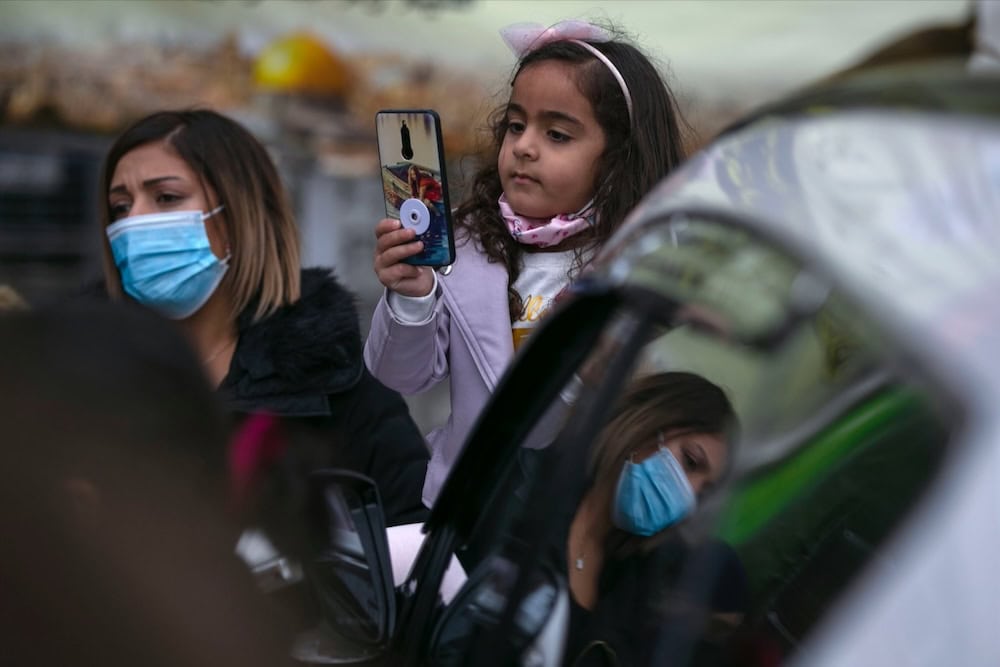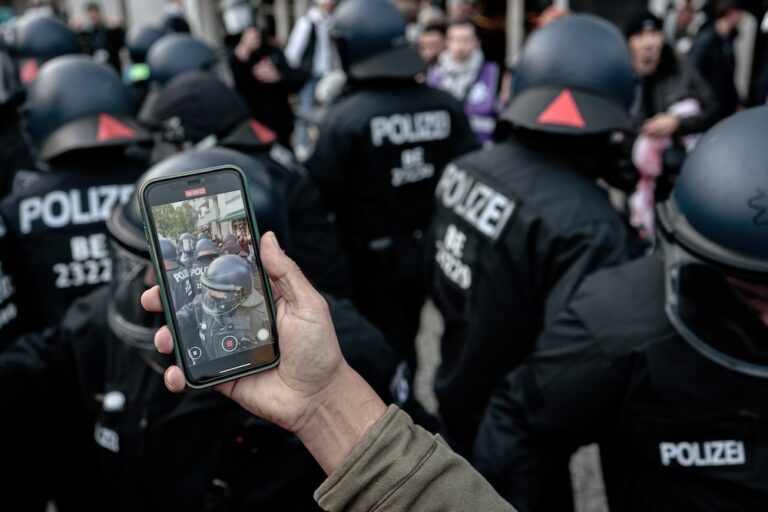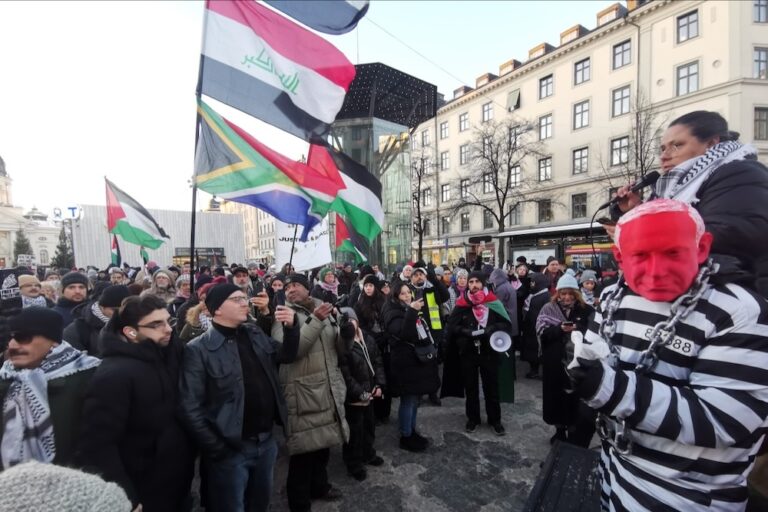A new study from 7amleh reveals how online harassment and cyber surveillance of young Palestinians has sparked a chilling rise in self-censorship.
This statement was originally published on 7amleh.org on 20 August 2024.
7amleh – The Arab Center for the Advancement of Social Media has published a new study titled “Digital Security Among Palestinian Youth: A Study on Threats and Challenges in Light of the War on Gaza” written by Dr. Saeed Abu Mualla, a writer and lecturer in journalism at the Arab American University. This study highlights the digital security landscape for Palestinian youth in the West Bank and Jerusalem by tracing the digital experiences of Palestinian youth aged 15 to 30. The study comes at a sensitive time, as the region suffers from the escalating impact of the ongoing war on Gaza since the events of October 7, 2023, which has prevented the inclusion of Gaza in the study. 7amleh will soon publish a similar study on the digital security of Palestinian youth citizens of Israel. The study, which relied on data collected from focus groups, field surveys, and a review of literature on digital security and digital rights, revealed troubling findings about the digital reality of Palestinian youth.
The study concluded that the issue of digital security in the Palestinian context has become complex due to the multiple entities violating Palestinian digital rights and the varied nature of emerging digital threats. It found that the Israeli occupation, digital platforms, Palestinian authority, along with private individuals and companies, all violate digital rights and pose threats. The results also reflected a significant gap in awareness and knowledge of digital security practices among users, making them vulnerable to various digital threats and attacks.
Palestinian internet users recognize that the internet is unsafe, especially when dealing with internal and external political issues related to the Palestinian context. Exposure to digital threats and attacks has prompted some users to learn and explore ways to protect themselves, while others lack any knowledge of protective programs. Some of the study’s findings indicated that 50% of respondents had experienced attacks such as “identity theft,” while 55% had faced attacks or assaults such as “harassment” and “cyber surveillance.” Additionally, 60% of users feel fear, anxiety, and insecurity, leading them to practice self-censorship, along with social pressures that force them to silence their voices and delete their posts.
The study also addressed the issue of mistrust within society, where some attackers are individuals from the users’ personal social circles. On the other hand, there is a lack of trust among victims in official authorities to deal with and punish the attackers if necessary, with users often preferring to turn to family and relatives over the police as a last resort. The findings also revealed that nearly half of the users had been questioned and investigated by Israeli security agencies or had heard of individuals who had been questioned. About a third had been questioned and investigated by Palestinian security agencies or had heard of individuals who had been. Finally, the study showed that with the onset of the Israeli war on Gaza after October 7, 2023, the Palestinian digital landscape entered a new reality, in terms of digital platforms’ practices against Palestinian digital content, censorship policies, reduced access, and post deletions. This has led to a decline in active youth political participation on social networks, with 39% of respondents reporting social pressures to delete political and social posts, while 50% said that the restrictions by platforms on publishing led to them reducing their digital activity.
Mahdi Kurzom, Project Coordinator at 7amleh, commented on the importance of the study’s findings, saying: “The study published by 7amleh on the reality of Palestinian youth shows how digital threats affect their daily lives, revealing real stories of young men and women facing ongoing challenges due to digital threats, cyberattacks, and strict censorship. These threats include the theft of personal information and the restriction of freedom of expression, which heightens feelings of anxiety and fear. The study also highlights the urgent need to enhance digital security and develop effective strategies to protect personal data, ensuring a safe and free digital environment for Palestinian youth. At 7amleh, we are working to raise awareness and develop effective solutions to address these challenges and improve the digital rights situation.”
The study also presented a set of recommendations, such as institutional and community collaboration to enhance digital security through the use of alternative platforms, providing comprehensive professional support, developing awareness efforts in line with digital transformations, considering the establishment of specialized institutions for cybercrimes, and updating the Palestinian educational curriculum to address the growing digital challenges, alongside international support to strengthen media literacy.
To read the study “Digital Security Among Palestinian Youth: A Study on Threats and Challenges in Light of the War on Gaza,” you can visit the link here.



